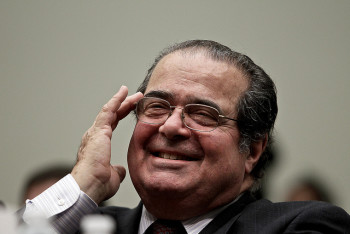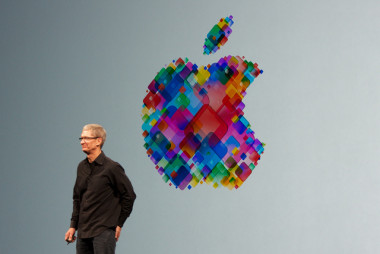By Peter Ward February 19, 2016
China’s Rich Kids Move West

Vancouver © Paolo Macorig
China, the largest remaining communist country in the world, has a new export – rich kids. A New Yorker article published online this week explores the trend of fuderai – which means ‘rich second generation’ – moving to the West, and bringing enormous spending power with them.
The story is centered on Weymi Cho, a Vancouver-based wealthy Chinese woman who stars in a Chinese reality TV show and drives a Maserati. Weymi’s show, Ultra Rich Asian Girls of Vancouver, is one of many shows that fascinate and horrify Chinese viewers around the world, many of whom disagree with a generation of kids flaunting wealth they haven’t earned.
Reporter Jiayang Fan introduces the reader to the topic through Weymi, before bringing in other characters to explain the sociological, political and economic reasons for the huge number of rich Chinese moving to the West. Fan’s reporting then moves to the real estate sector in Vancouver, and how it has been affected by an influx of wealthy Chinese buyers.
The article benefits greatly from a cast of strong, colorful characters, painting a vivid picture of the motivations and consequences of a rising new cultural phenomenon.
Supreme Court: Most Liberal in Nearly 50 Years?

Antonin Scalia © Stephen Masker
The U.S. Supreme Court has a huge impact on business. Decisions on topics ranging from immigration to climate change can have lasting effects on the world’s economy. On Saturday Justice Antonin Scalia died, leaving only eight Supreme Court justices and one vacancy. The process of appointing a replacement is set to be a huge political battle between President Obama and the Republican Party-led Senate.
A graphic published by The New York Times on Thursday shows how the next appointment to the Supreme Court could make it the most liberal set of justices in a decade. Each justice is given an ideological score based on voting patterns gleaned from the Supreme Court database and plotted on an uncluttered, simple to read graph.
The visualization shows the historical shifts in ideology each time a new justice has been appointed in the past. If Scalia’s replacement is more liberal than Justice Anthony Kennedy, the graphic shows the Supreme Court will become the most liberal in nearly 50 years.
Apple’s Encryption Encounter Explained

Apple CEO Tim Cook © Mike Deerkoski
How can a 225-year-old law apply to today’s technology sector? That’s the question Apple has been asking, after the U.S. government used a centuries-old statute to demand the unlocking of a terrorist’s iPhone.
The U.S. government is not asking for something Apple already has – it is demanding the technology company build software that will hack into the encrypted iPhone used by one of the killers in December’s mass shooting in San Bernadino. The government wants the software to be built specifically to gain access to just one phone, but Apple argues that any software it does build will be easily customizable to unlock any iPhone in the world.
The legal battle has been brewing for some time. In September 2014, Apple built new encryption into the operating systems of iPhones that made it mathematically impossible for the company to unlock them. Before this, investigators could get access to a device if they sent it to Apple with a search warrant.
Now the government has attempted to use the “All Writs Act,” a law which gives federal courts the power to “issue all writs necessary or appropriate in aid of their respective jurisdictions and agreeable to the usages and principles of law,” in order to gain access to the phone. Apple says this would set a dangerous precedent.
“If the government can use the All Writs Act to make it easier to unlock your iPhone, it would have the power to reach into anyone’s device to capture their data,” Apple CEO Tim Cook wrote in response to the order. “The government could extend this breach of privacy and demand that Apple build surveillance software to intercept your messages, access your health records or financial data, track your location, or even access your phone’s microphone or camera without your knowledge.”
The battle pits the government against one the world’s most popular companies at a time when privacy and anti-surveillance sentiment is reasonably high, after the Edward Snowden leaks in 2013. Snowden himself has declared the encryption battle the most important technology case of the decade.
Cancer Charity to Close Years After CNN Investigation

Charity. ©Courtney
The last of a family of cancer charities accused of widespread fraud is to close voluntarily after years of investigative reporting from CNN, Tampa Bay Times and The Center for Investigative Reporting found fake donations and faulty recordkeeping.
The charities include The Cancer Fund of America, The Breast Cancer Society and Children’s Cancer Fund of America. The Cancer Fund of America has tentatively agreed to dissolve, following a battle with the Federal Trade Commission and the attorneys general for all 50 states. Two of the charities immediately closed their doors in 2015 after the Federal Trade Commission first launched its complaint against them.
The government’s lawsuit against the charities claimed they spent donations on personal items such as Caribbean cruises and trips to Disney World. The closure of the last charity would bring an end to the story, first reported by CNN in 2013.
The original reporting by the three organizations identified the 50 worst charities in the U.S., identifying a lack of regulation and rampant fraud.
The Week’s Top Headlines
Federal Reserve meeting minutes show uncertainty about global economy – Jana Kasperkevic, The Guardian
Stocks Rally With Oil as Risk Assets Rebound; Treasuries Retreat – Inyoung Hwang, Dani Burger, Bloomberg News
Bombardier to cut 7,000 jobs worldwide BBC
The centuries-old law the government wants to use to unlock a terrorist’s iPhone – Andrea Peterson, The Washington Post
Iran Balks at Committing to Capping Its Oil Production – Benoit Faucon, Summer Said, The Wall Street Journal
OECD urges world leaders to tackle flagging growth – Michael Rose, Reuters
Uber is burning through $1 billion a year in China – Jake Smith, ZDNet
Jobless Claims in U.S. Decline to Lowest Level Since November – Victoria Stilwell, Bloomberg News
IBM Watson To Buy Truven Health For $2.6 Billion, Bolsters Data Cloud – Bruce Japsen, Forbes
Nike Drops Manny Pacquiao For Anti-Gay Comments – David Mack, Buzzfeed News
This entry was posted on Friday, February 19th, 2016 at 5:03 pm. It is filed under Week in Review. You can follow any responses to this entry through the RSS 2.0 feed.
Comments are closed.
